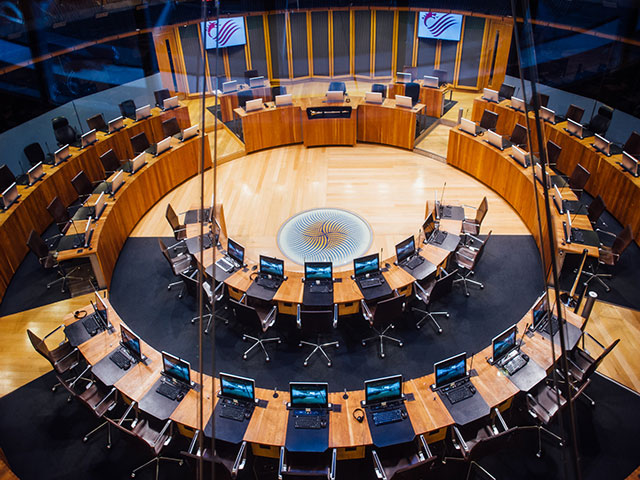A third of people in Wales wrongly believe the Conservatives have ministers in the Welsh Government, a Senedd committee heard.
Llyr Gruffydd highlighted the recent polling as the culture committee took evidence from Sir John Whittingdale – the UK’s minister for media, tourism, and creative industries – on public-service broadcasting.
Mr Gruffydd raised concerns about poor public understanding of the role of the Labour-controlled Welsh Government due to a lack of media coverage. The Plaid Cymru MS for North Wales said: “I saw a recent YouGov poll which showed that a third of people – a quarter of a century into devolution – still don’t appreciate that the Welsh Government is responsible for health.
“A third actually believe the Conservatives have ministers in the Welsh Government following the 2021 election. It does, does it not, underline that there is an insufficient broadcasting service in Wales because otherwise this wouldn’t be the case, would it?”
Sir John told MSs poor understanding of which layer of government is responsible is a problem that is not unique to Wales.
But he recognised the BBC has a duty to educate as well as inform, saying increased coverage is an important part of that.
He said: “It is a question for the broadcasters as to how they report and inform people about what’s happening in this building – which, in terms of affecting the lives of people in Wales, is a lot of the time more relevant than what’s happening in Westminster.”
Mr Gruffydd contrasted what’s on offer in Scotland and Wales, saying: “Many people really do feel that we’re being let down.”
‘Feast and famine’
Alun Davies raised concerns about a lack of Welsh news and cultural content for English speakers compared with what’s available in Welsh. During the evidence session on Wednesday October 19, the Labour MS for Blaenau Gwent described the offer as “very much feast and famine” in the same country.
Sir John pointed out that covering the nations properly is in the top line of the BBC Charter, which he was responsible for drawing up in his time as culture secretary.
He said: “The extent to which the news has been, perhaps, too dominated by events in Westminster and London is something the BBC is aware of and trying to address.”
Sir John said BBC production often moves around the country, raising the example of Newsnight being produced in Cardiff occasionally.
He told MSs that a proliferation of different content providers through streaming is putting pressure on public-service broadcasters.
‘Brass plating’
Mr Gruffydd raised the risk of regional production quotas being reported in an insincere manner.
Sir John – who is covering for his Conservative colleague, Julia Lopez, during her maternity leave – shared his concerns. He told committee members: “There’s long been a complaint about what they call ‘brass plating’ – somebody having an office outside the M25 to qualify, even though most of the employees come from within.
“I would hope that Ofcom would look hard to check that production which is claimed to originate in Wales actually does and isn’t just directing from a brass plate on the door when most of it’s done elsewhere.”
Tom Giffard, who represents South Wales West, raised concerns about TV production being too centred on Cardiff. Sir John, who visited the BBC Wales’ new Cardiff headquarters that day, sympathised with his Conservative colleague’s view, saying: “I can understand you don’t want everything centred on Cardiff to tick the box saying ‘made in Wales’.”
He said he is hopeful that the media bill will be part of the King’s Speech on November 7 and, that being the case, it should become law during the first half of 2024.
Sir John – who chaired Westminster’s culture committee for a decade – said the draft bill has specific provisions for S4C which will be of real benefit to viewers in Wales.

